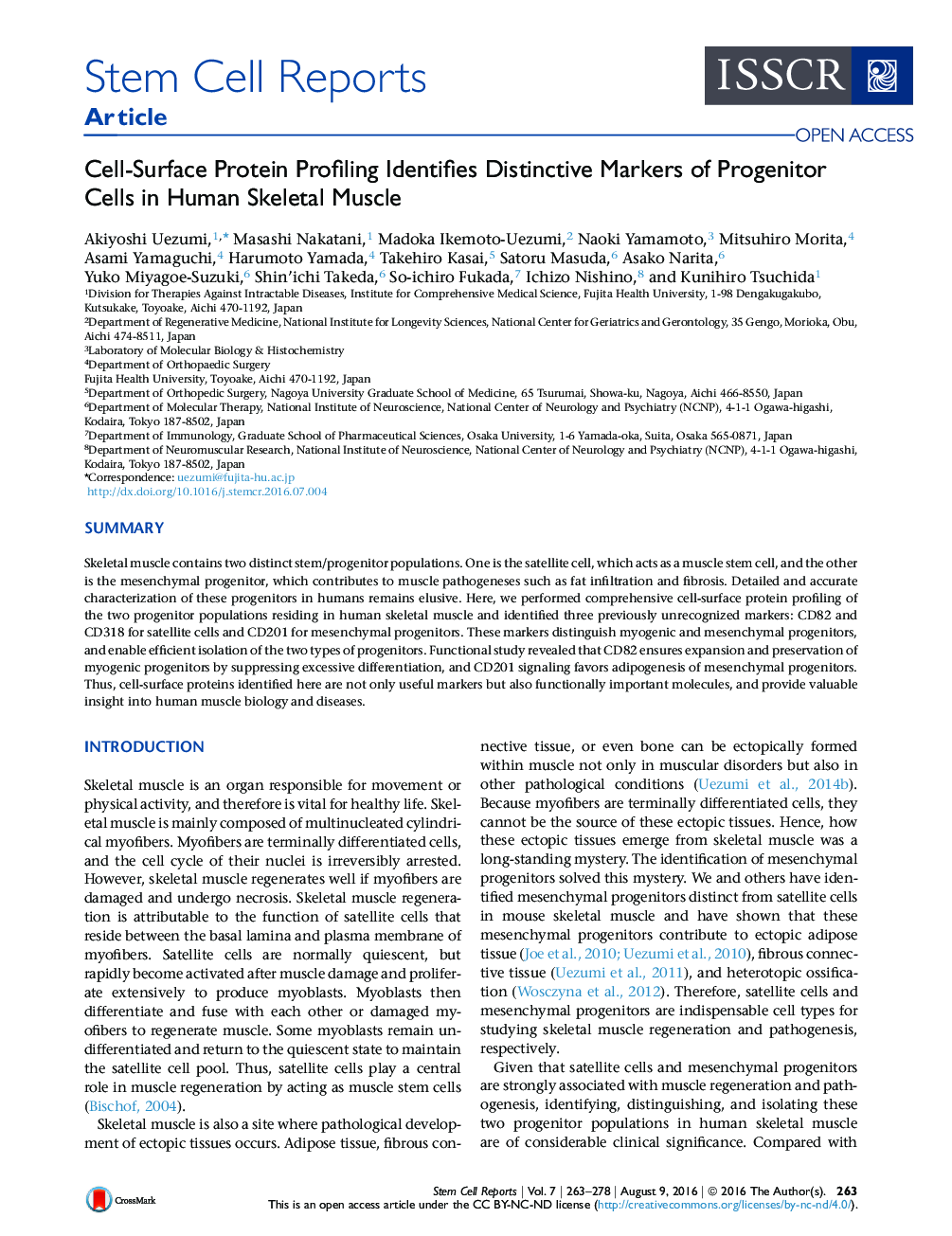| Article ID | Journal | Published Year | Pages | File Type |
|---|---|---|---|---|
| 2093217 | Stem Cell Reports | 2016 | 16 Pages |
•CD82 and CD318 are expressed on human muscle satellite cells•CD201 is expressed on interstitial mesenchymal progenitors in human muscle•CD82 suppresses premature differentiation of satellite cells•CD201 signaling favors adipogenesis of mesenchymal progenitors
SummarySkeletal muscle contains two distinct stem/progenitor populations. One is the satellite cell, which acts as a muscle stem cell, and the other is the mesenchymal progenitor, which contributes to muscle pathogeneses such as fat infiltration and fibrosis. Detailed and accurate characterization of these progenitors in humans remains elusive. Here, we performed comprehensive cell-surface protein profiling of the two progenitor populations residing in human skeletal muscle and identified three previously unrecognized markers: CD82 and CD318 for satellite cells and CD201 for mesenchymal progenitors. These markers distinguish myogenic and mesenchymal progenitors, and enable efficient isolation of the two types of progenitors. Functional study revealed that CD82 ensures expansion and preservation of myogenic progenitors by suppressing excessive differentiation, and CD201 signaling favors adipogenesis of mesenchymal progenitors. Thus, cell-surface proteins identified here are not only useful markers but also functionally important molecules, and provide valuable insight into human muscle biology and diseases.
Graphical AbstractFigure optionsDownload full-size imageDownload as PowerPoint slide
